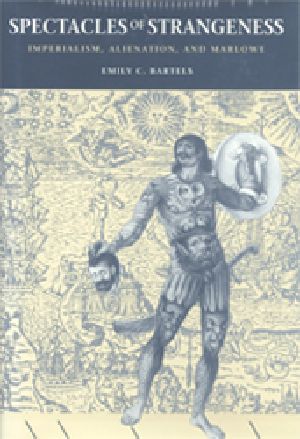Spectacles of Strangeness · Imperialism, Alienation, and Marlowe

- Authors
- Bartels, Emily C.
- Publisher
- University of Pennsylvania Press
- ISBN
- 9780812231939
- Date
- 1993-06-29T00:00:00+00:00
- Size
- 0.58 MB
- Lang
- en
Oriental barbarians, black magicians, homosexuals, African queens and kings, Machiavellian Christians, Turks, and Jews - for an English audience of the sixteenth century, these are marginal, unorthodox, and strange figures. They are also the central figures in the plays of Christopher Marlowe. In Spectacles of Strangeness, Emily C. Bartels focuses on Marlowe's preoccupation with "strangers" and "strange" lands, and his use - and subversion - of Elizabethan stereotypes. Setting Marlovian drama in the context of England's nascent imperialism, Bartels probes the significance of the alien as a vital presence on the Renaissance stage and within Renaissance society. Bartels further examines the reasons that Marlowe (himself a marginalized figure as playwright, and reputedly a homosexual, spy, and atheist) turned again and again to the subject. Bartels argues that what makes Marlowe's dramas so remarkable, important, and subversive is that he evokes these cultural stereotypes only to undermine them: to expose the circumscription of difference as a political strategy, designed to advance the self, state, and status quo over and against some "other." By interrogating Marlowe's works and their relation to England's imperialism, the author helps to explain why the "alien" was such a prominent figure in the Renaissance's theatrical and extra-theatrical discourses and how imperialism influenced the development of the early modern theater and the early modern state. Drawing on new historicist methodologies and recent assessments of colonialist discourse, Spectacles of Strangeness is a stimulating study of one of the most important figures in Renaissance literature and drama.